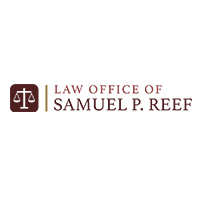 Randolph DUI-DWI Lawyers, Massachusetts
Randolph DUI-DWI Lawyers, Massachusetts
Sponsored Law Firm
-
 x
x

Click For More Info:
-
Adam P. Beck, M.D., Esq.
25 Marston St Suite 303 Lawrence, MA 01841» view mapAccident & Injury Law Legal Expertise You Can Rely On
By working with lawyers who are also doctors, clients can benefit from advocates who have a deeper understanding of their physical injuries, medical needs, and prognoses.
800-383-8491
Sponsored Lawyers
1-9 of 9 matches
Car Accident, Bankruptcy, Divorce, DUI-DWI
Samuel Reef is a practicing lawyer in the state of Massachusetts. He received his J.D. from Suffolk University Law School in 1994. He currently works for his privately owned firm of Law Office of Samuel P. Reef.
(more)Criminal, DUI-DWI
Attorney Milligan is a Massachusetts drunk driving defense lawyer dedicated to aggressively representing and defending people charged with drunk driving in Massachusetts (OUI, DWI, DUI). He is one of the only two(2) lawyers in Massachusetts that is board certified in drunk driving defense. Attorney Milligan has also been identified as a “Super Lawyer” by Super Lawyers Magazine in Massachusetts. He is the chair of the Massachusetts continuing legal education courses on handling OUI cases and has lectured other Massachusetts lawyers how to best defend clients charged with drunk driving (OUI, DWI, DUI). Attorney Milligan is a seasoned and experienced drunk driving lawyer who handles more drunk driving cases a year in Massachusetts than most attorneys do in their career. You need a lawyer dedicated to Massachusetts drunk driving defense, who knows the law, and aggressively fights to obtain the best outcome possible.
(more)


 Adam Beck Lawrence, MA
Adam Beck Lawrence, MA AboutAdam P. Beck, M.D., Esq.
AboutAdam P. Beck, M.D., Esq. Practice AreasExpertise
Practice AreasExpertise


